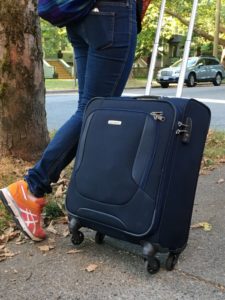Moving to a new country and organizing yourself financially in a completely new culture is scary. Many students fail to adapt financially, and they acquire huge debts. It’s especially important that students whose monthly incomes are quite reduced learn to manage their money and live within a budget, and avoid the debt trap.
During the first months in your new country, I recommend you write down all your expenses, from rent and health insurance to entertainment expenses such as movies and bar nights. This allows you to have concrete information to prepare your monthly budget. If you are living here for some time and have not yet done this calculation, I recommend doing it as soon as possible.

When you plan, it becomes easier to pay your monthly bills and reach your goals. Personally, I always try to not spend all my income; I save money each month, even if it’s just a few dollars. We never know what surprises may come in the future, so having a bit of extra money is a good idea, especially for us international students, as our tuition is higher than domestic students and we also need to pay for visa renewal and permit costs.
Rent in Victoria is getting more and more expensive, so I try to save money on my phone bill and when I’m grocery shopping. Also, before I buy clothes or electronics, I always ask myself if the purchase is because of need or because of desire. If it’s just the will to have something new, I make the sacrifice of not buying. I’m saving money that may be needed in the future.
If you’re thinking of making a big purchase, such as buying a car, you have to be extra careful. Many companies offer plans with the option to pay later, but be careful, as they can turn into a new debt. In this case, planning monthly expenses is even more important.
The most important thing is to change your habits. Much of the spending comes from small daily purchases. So, some tips: bring your own snacks for class or work; use public transportation; buy clothes that can be washed in household washing machines. Follow these new habits until your monthly income increases, which usually only starts to happen after school. You may be surprised at how much you can save on a day-to-day basis. This can make your stay in your new country much easier.
